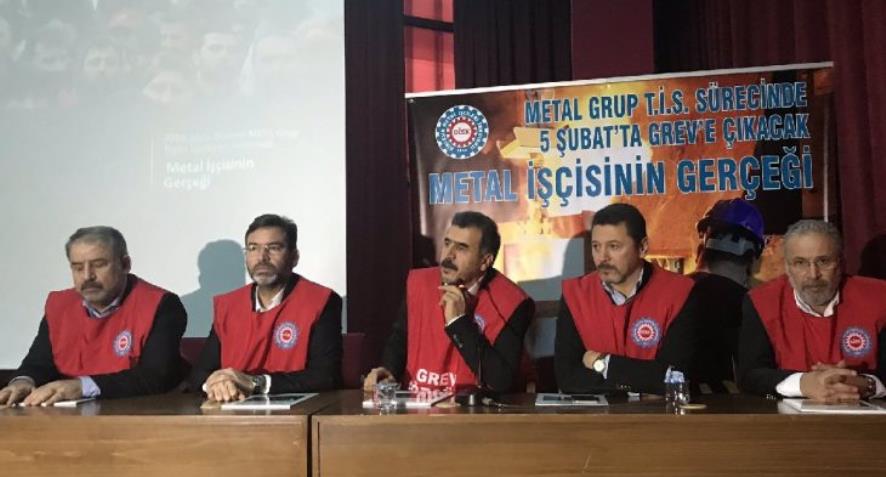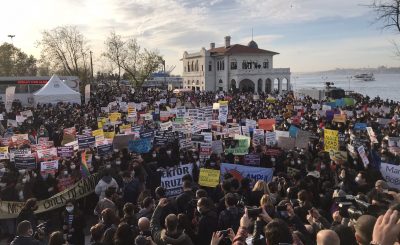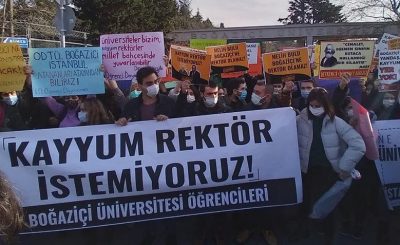Negotiations for a new collective agreement between the state-controlled Türk Metal trade union, the Islamist Özçelik-İş trade union, the reformist Birleşik Metal-İş and the Turkish Employers Association of Metal Industries (MESS) eventually came to an end, but were identified by some of the leftist organizations in Turkey as “treason agreements”.
State-controlled Türk Metal and reformist Birleşik Metal-İş announced at rallies in mid-January that they would hold effective strikes that were scheduled to begin on February 5. However, it seems that after these successive betrayals of the state-controlled and reformist trade union leaders, there would be no strike, and even if the strike actions were unlikely to take mass character.
Representatives of the Türk Metal and the Islamist Özçelik-İş, first agreed with the employers. On January 29, they announced that they had reached an agreement to conclude a new collective agreement for the period 2019-2021.
The agreement is valid for two years, as of 1 September 2019. According to the agreement, hourly wages of those earning under 12 Turkish Liras (2 US dollars) will be increased. All wages will increase by 17% during the first six-month period.
For the second six-month period, an increase of 6% for hourly wages even if the inflation rate is under that figure. If inflation is above 6 per cent, it will be added. For the third and fourth six-month periods, hourly wages will be raised at a level equal to inflation.
As for benefits, for the first year, a 20 per cent rise will be provided.
The average increase with all gains is 18.49 per cent for the first six months, totalling 25.50% for the first year. In addition, health insurance provided by the employers has been maintained.
Initially, the reformist Birleşik Metal-İş, announced that it rejected this proposal by the employers’ organization MESS. But on Sunday, at a meeting at the Turkish Ministry of Labor and Social Policy, which acted as a mediator between trade union leaders and employers’ representatives, the trade unionists gave way to the MESS and agreed to sign the same proposal outlined above.
Signed by all unions in the sector, a new collective agreement affects a total of 119,000 workers in 200 enterprises.
This again repeated the scenario observed in the previous negotiation periods for collective agreements in metallurgy. The Türk Metal trade union and the Islamist Özçelik-İş almost immediately agreed with the employer organization, and the reformist Birleşik Metal-İş once again played the show of the so-called “working-class avant-garde” for workers. However, this avant-garde has made sharp turns every time, and every time it shakes hands with the capitalists, once again betraying interests the workers.
Attention was also drawn to the way union’s signature of the agreements was announced to the public. While Türk Metal and Özçelik-İş said it was “an agreement that was written with gold letters in the history of the trade union movement, given the current conditions in our country.”
Birleşik Metal-İş leaders were far more reluctant in their reaction, with the media of the reformist leftist parties in Turkey supporting the union as if almost tried to cover up the news of the betrayal on the negotiating table.
Once again, the thesis that the biggest obstacle to the development of the workers ‘movement in Turkey are the state-controlled, the reformist trade unions and the leftist parties, who support them in their maneuvers to passivize workers’ anger against capitalist exploitation.




